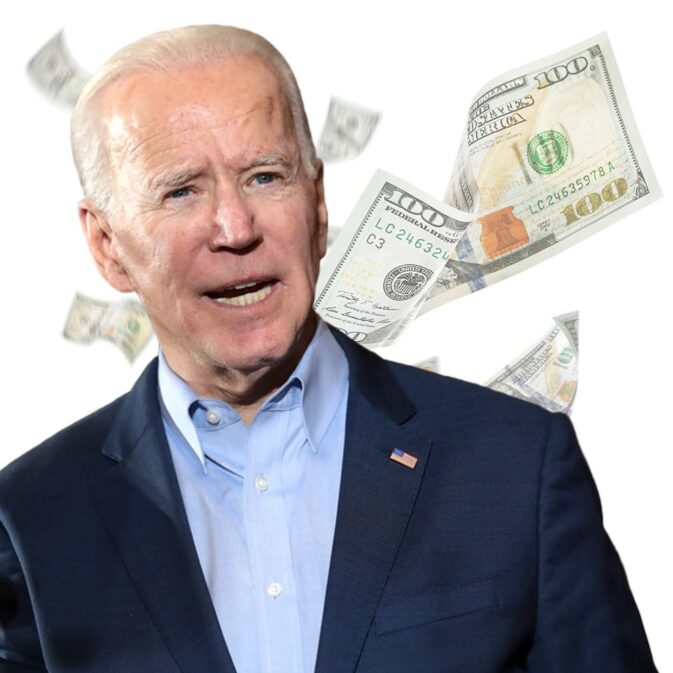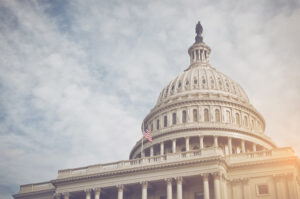Biden brags about the numbers, but high inflation especially hurts Black and Hispanic Americans

The Bureau of Labor Statistics last week confirmed what everyday Americans who shopped over the holiday season already know: Historic inflation continues unabated, eroding Americans’ real wages and living standards. Overall inflation over the past 12 months — the calendar year of 2022 — increased by 6.5 percent, far exceeding average wage growth, and core inflation actually rose last month. Services prices grew at their fastest rate in 40 years.
Yet you wouldn’t know it from President Biden’s celebratory remarks following the release of these numbers. Biden took credit for the slight moderation in topline inflation that remains more than three times the Federal Reserve’s target rate, claiming it’s “clearer than ever” that his policies are working. He also bragged about the low unemployment rate, ignoring how labor force participation remains significantly depressed compared to pre-pandemic levels.
As I argue in my new book, “The Real Race Revolutionaries: How Minority Entrepreneurship Can Overcome America’s Racial and Economic Divides,” elevated inflation disproportionately hurts minorities. It threatens America’s entrepreneurship advantage that provides minorities with the best opportunity to bridge racial economic gaps.
Consider which small businesses are more impacted by inflation caused by the Biden administration and congressional Democrats’ reckless spending: a local barbecue joint, or a financial services company? A neighborhood dry cleaners or a downtown law firm? A landscaping business that operates out of a 2005 Toyota Tacoma, or an internet entrepreneur who works from his home laptop?
While the political class that is responsible for today’s inflation through their support for dramatic deficit spending escapes unscathed, ordinary Americans, especially minorities, face enormous cost-of-living challenges.
Many ordinary small businesses can’t simply pass along two years of elevated inflation to their customers. There’s only so much people are willing to pay for barbecue, dry cleaning, and landscaping. At a certain price point, Americans will choose to eat at home, do their own laundry, and cut their own grass.
As a result, small businesses face a dilemma: either raise prices to cover inflation and scare off consumers or let inflation corrode already-slim profit margins. This lose-lose situation threatens many forgotten small businesses in all pockets of the country that neither lobby nor make the news.
Such small businesses include GrandDaddy’s Hot Chicken in Nashville, which has had to raise the price of its chicken tenders by 62 percent over the last year to offset a near doubling of wholesale costs, and Don Ramon restaurant in West Palm Beach, which has seen the price of a box of limes rise from $30 to $90, forcing it to make mojitos with lemons. These establishments are run, respectively, by Black and Hispanic Americans.
Since ordinary small businesses are disproportionately run by minorities, who are far more entrepreneurial than white Americans, ongoing high inflation threatens to widen racial economic divides that narrowed during the Trump administration due to pro-growth policies that turbocharged entrepreneurship.
Consider that in 2019, real median income rose by 7.9 percent for Black households, 7.1 percent for Hispanics, 10.6 percent for Asian Americans, and 5.7 percent for whites. Each of these numbers represents record increases and record absolute rates. The labor force participation rate reversed its long decline and actually began to increase as the red-hot jobs market pulled Americans from all backgrounds, including minorities, ex-convicts, high-school dropouts and those with disabilities, into the jobs market.
What a stark difference to today.
Progressives claim the moral high ground on racial issues, stating that their policies help overcome racial divides. For example, the White House and progressive groups said last summer’s Inflation Reduction Act will aid Black Americans. Yet, to the extent such massive government programs depend on deficit spending, they exacerbate inflation, which hits minorities the hardest.
Ironically, the free market and entrepreneurship, which Democrats often attack, remain the best way to overcome racial income disparities. In fact, minority entrepreneurs have already eliminated racial economic gaps, earning more than average white Americans.
To boost minority entrepreneurship to further close these economic gaps, Americans must recognize that the government helps most when it does less, not more. Small businesses and their defenders are the ones who genuinely deserve moral authority on race issues.





